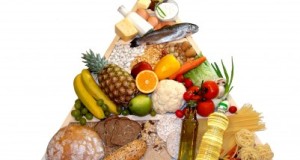
Overweight and obesity in children are creating headlines and the stories make frightening reading. Weight loss in children is a sensitive subject, but one of great importance, as the majority of overweight children will grow into overweight or obese adults, with greater risk of life-limiting and threatening diseases and an overall reduction in life expectancy.
First of all it is important to stress that weight loss in children should be handled with extreme care – kids are still growing and it is vital that they receive the correct balance of nutrients they need to ensure that they grow up healthy. Therefore, any weight loss diet should be discussed with a physician or dietician. There is no point in avoiding one set of illnesses if, at the same time, we set up conditions which will encourage a different set of illnesses, in this case those based on nutritional deficiency.
While parents can’t control everything their children eat, especially as the children become older and start developing individual social lives, they can do a great deal to help their children develop healthy eating habits, by teaching them about nutrition and providing interesting, tasty and healthy meals at home. These should include some treats, so that children don’t feel they are being deprived of foods their friends eat every day.
Combining a sensible, healthy diet with regular exercise is the best way forward and the sooner this can be introduced into a child’s life, the better. If parents eat properly and exercise every day or at least three times a week, kids will consider this to be normal behaviour and so shouldn’t find it difficult to do the same.
Your doctor or dietician can tell you how many calories a growing child needs and can also recommend the amount of exercise he needs to lose weight. Parents should find forms of exercise that the whole family can do together, making it fun rather than a chore.
Being over-strict with either diet or exercise routines can have a detrimental effect and so parents should be careful. So, introduce new ideas gradually and get the kids involved in the planning and decision making. Older children can search online, in the library and in bookshops for information about the nutrients they need and the foods which contain them. By making this into an enjoyable family project, creating a scrapbook or even a website with the results, this can become an enjoyable experience. Kids can also learn how to cook simple but healthy meals and create their own recipes. Even the little ones can join in, as long as they are supervised in the kitchen. A project like this can also enable children to learn other skills such as digital photography and web design, thus taking the emphasis away from weight loss.
© Waller Jamison 2007

Source by Waller Jamison
 Vitamin Agent The Health & Naturalistic Source
Vitamin Agent The Health & Naturalistic Source



